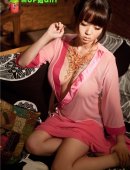-
粤叁斤瘦身灸多少钱一盒?是真的吗【真实评价】(3)
- 发表时间:2019-11-28 12:00 | 巴黎女士女性时尚网 | 点击数: 次
-
流逝
形容女人的词
600713
爱康科技
永丰网
missing you
只有神知道的世界第一季
-
By eliminating the text-book, or by using it simply as a convenient syllabus and chronological guide to an inquiry into the significance and relationship of the events of the past, with the aid of every good historical work available for reference, the study of history would become a matter of concern to the pupil; and the past, looked at from several angles, and down a felt perspective of time, would become real.
I am aware that this is done in the higher flights of the educational system. But why is it that the easy and profitable methods of learning are put off so long and the hardest and most profitless forced upon children? Is it that easier learning means harder teaching? I am not sure of that; the only difficulty about such a method as I have described would be in the mere change from the old to the new. No, I think the real trouble lies in the superstition of the Book.
This may be seen in the teaching of mathematics. Before they come to school, children[Pg 44] have usually learned to count, and learned easily because they were counting real objects. The objective aspect of mathematics is almost immediately lost sight of in school. Even the blackboard affords no release from the book, for who ever saw a blackboard outside a schoolroom? Mathematics comes to seem something horribly useless. The child simply does not believe that people ever go through these tortures when they grow up. Even the suggestive fables into which the “examples” are sometimes cast, fail to convince him. “If a carpenter—” “A salesman has—” But he is neither a carpenter nor a salesman. He is a weary child, and he is not going to pretend to be a carpenter or a salesman unless he gets some fun out of it. The thing about a carpenter or a salesman which appeals to the child’s imagination is something other than mathematics. No, the printed word does not suffice. But let him be a carpenter or salesman for the nonce, let him with saw or sugar-scoop in hand find it to be necessary to add, subtract, multiply, divide and deal in fractions, and he will rise undaunted to the occasion. And, having found in actual practice just what his difficulties are, he will cheerfully use book and blackboard. Where there’s a will there’s a way, and mathematics has only to[Pg 45] come to seem a desirable acquisition to become an easily mastered one. I should say that the ideal way of teaching a boy of eight mathematics—including, if necessary, trigonometry—is as a part of the delightful task of constructing a motorcycle. I remember that I gained in twenty-four hours an i
Tags: 流逝 形容女人的词 600713 爱康科技 永丰网 missing you 只有神知道的世界第一季
- 爱美
- 健康
- 情感
- 美体










